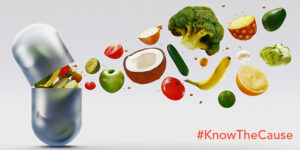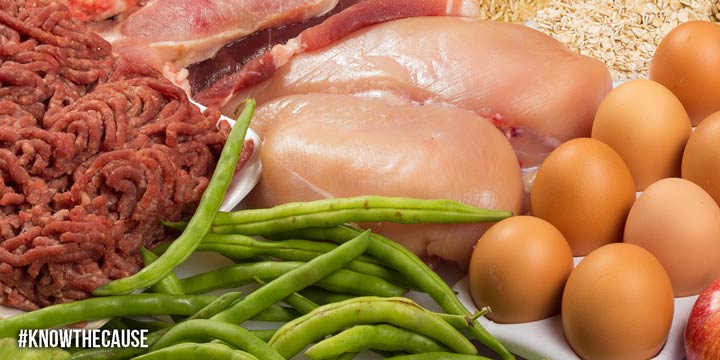

The term “macros” is commonly used as a shorthand for macronutrients. The prefix “macro” is the opposite of “micro”; if micro is small, macro is large. The word “Macronutrients” pretty much means large nutrients.
When we think of nutrients, often we think of vitamins like vitamin C, or B vitamins, or any number of nutrients that are important to health. Vitamin C and other such nutrients do not make up the bulk of nutrients our body burns as fuel or use’s for its structure, though. While these types of nutrients are important, they do not constitute the large portion of what our body requires to operate.
Essentially, what we are talking about when we talk about macronutrients are carbohydrates, proteins, and fats. Virtually all food is inherent in some level of these three things. In order to be fully nourished, the body must regularly receive a significant amount of these three nutrients in order for us to survive.
Each of these macronutrients has a specific amount of inherent energy, measured in calories. Fat has the highest amount of energy per gram, coming in at 9 calories per gram. Carbohydrates and protein both contain 4 calories per gram.
Calories, by the way, are not a bad thing, at all! Eating a significant amount of calories is necessary for survival, not to mention good health. Calories are often maligned, typically because people want to eat fewer of them for the purpose of losing weight. Just like fat or carbohydrates are not inherently bad, neither are calories.
There are other distinctions within specific families of macronutrients. For example, there is unsaturated fat, saturated fat, and the myriad of other, specific types of fat. There are simple and complex carbohydrates. There is plant protein and animal protein. These distinctions can be important for certain diets.
Macros on the Kaufmann Diet
Many diets––particularly diets like the ketogenic diet––focus on restricting certain macronutrients, such as carbohydrates. Other, more traditional diets, focus on eliminating fat from the diet.
The Kaufmann Diet does not focus on restricting or eliminating certain macros, necessarily––just certain foods. One could claim the Kaufmann Diet is a low carb diet because of the elimination of grains and sugar, but it is perfectly possible to follow a higher carbohydrate version of the Kaufmann Diet, particularly if you are on Kaufmann 2. The source of those carbs is more important than the carbs, themselves, on the Kaufmann Diet.
Often, it is beneficial to start with trying to achieve a balanced proportion of macros in your diet. For some, a good starting point is 30% of calories from fat, 40% of calories from protein, and 30% of calories from healthy sources of carbohydrates. From there, it is really about finding what works for you. Some people do better eating high protein. Others do better on high carb. Some thrive on a high-fat diet. Regardless, it is completely possible to change the proportion of macros in your diet and still stay within the Kaufmann Diet framework.
Doug Kaufmann has written many books that cover a full range or health issues. Find out which of his books best suits you by clicking the button below.
Doug Kaufmann developed his diet after years studying the clinical effects of pathogenic fungi on the body. Fungi and yeasts can become parasitic organisms on and inside our body, causing health problems that can be difficult to diagnose. Learn more about the Kaufmann Diet, change your life and know the cause.
We encourage all visitors to this site to take some time and study these technical articles prior to initiating lifestyle changes, including dietary changes and to do so with their physician’s awareness and approval. The articles posted in this link are scientific and with few exceptions are taken from medical journals familiar to healthcare workers.
Looking for help assembling antifungal Kaufmann Diet approved recipes for breakfast, lunch or dinner? We have several videos, books and recipe write ups here on Know the Cause that will help your health journey. The recipes in this section are so good, you’ll feel like you’re indulging. No sacrifice needed! Enjoy.
© 2024 Mediatriton Inc. All Rights Reserved • Website by Skynet Solutions